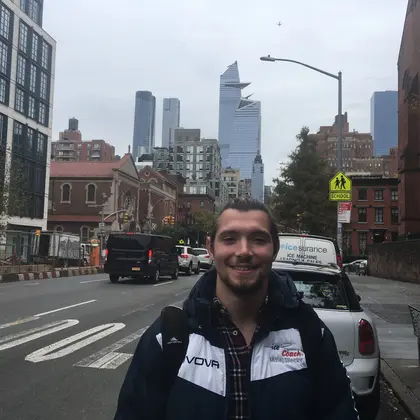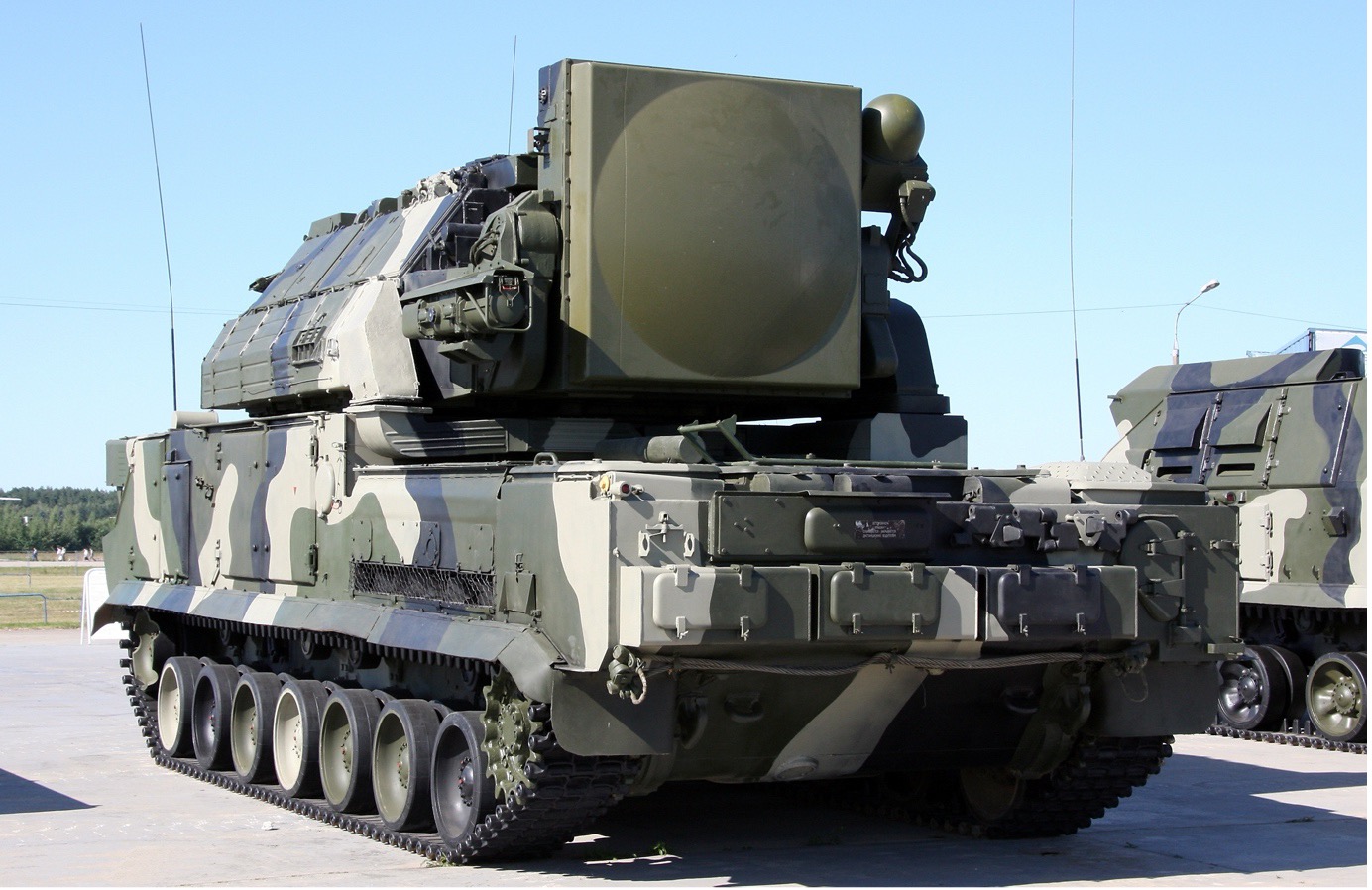NEW YORK — An American professor dismissing Ukrainian history as told by Ukrainians jolted Matej Silecky when he was a student at the University of California-Berkeley.
One of his teachers rejected an essay by Silecky about Russian and Soviet history because he quoted a respected academic of Ukrainian origin, Orest Subtelny, who himself taught at top U.S. and Canadian colleges. The professor told Silecky he distrusted Subtelny “because he’s Ukrainian.”
“I was shocked that something like that was being said at Berkeley where that kind of discrimination was not supposed to exist,” said Silecky, a Ukrainian-American born in the U.S. state of New Jersey.
He said the professor’s attitude “somehow clicked with stories my grandmother told me” about how after fleeing from Ukraine and coming to the U.S., the Ukrainian diaspora community had to fight against distorted or jaundiced versions of history offered by people ignorant about or inimical toward Ukraine.
Silecky told the Kyiv Post that he wondered why Ukraine and its history and culture so frequently seemed to be unrecognized or “put aside.” He decided he would use film to redress the balance.
He completed Berkeley in 2015, majoring in interdisciplinary studies (film, choreography, landscape architecture) and minoring in theater, dance, and performance studies.
The following year he gained a grant from the Ella Lyman Cabot Trust enabling him to buy moviemaking equipment and learn more about documentary techniques.
In 2018 he applied his knowledge and skills to devise and direct a movie entitled, with a nod to the relative who inspired it, “Baba Babee Skazala” – “Grandmother Told Grandmother.”
The hour-long English-language documentary features 37 men and women relating, in candid, and often touching, manner about their journeys – both geographical and psychological – to America, as children uprooted from their homeland by World War II.
Interspersed with the interviews is footage of events in World War II, including rare clips from Ukraine’s National Film Archives and material from the Harvard Ukrainian Research Institute.
The trailer for the documentary “Baba Babee Skazala” or “Grandmother Told Grandmother.”
Documentary screened at international festivals
“Baba Babee Skazala” has gathered a lot of plaudits including, in 2019, being nominated for best documentary at the New York City Festival of Cinema, being screened at Ethnografilm Festival in Paris, the U.K.’s Swindon Independent Film Festival, and receiving an Honorable Mention at the 37th New Jersey International Film Festival.
Last September the documentary was a finalist at Ukraine’s Brukivka International Film Festival held in Kamenets-Podilsky, the historic city of 100,000 people located 420 kilometers southwest of Kyiv. The southwestern border city boasts, among other historical sites, a finely-restored early 17th-century castle.
Silecky told the Kyiv Post that the documentary – his first film – tells the story of survival of its subjects as they were caught between the Nazi and Soviet fronts in World War II and how they spent part of their childhood as refugees in Europe.
But he also wanted to show “all the fantastic and inspiring things they did in the Ukrainian diaspora with their own resources….creating new homes and communities through their grit, faith and a deep belief in the importance of preserving culture.”
The interviewees include Tetiana Silecky, the inspiration for the documentary, and the filmmaker’s grandmother who left Ukraine at age 8.
For children who had grown up with starvation, fear, and death, the refugee camps, in areas under American or British authority, seemed blissful places of peace and safety.
Tetiana Silecky describes, still laughing at the memory, how she learned to eat American peanut butter and use dried egg powder.
Maria Figlus had watched after the Red Army arrived in 1939 in her area of what is now Western Ukraine and witnessed people being packed into trucks for deportation to Siberia.
She remembers the rich community life at the refugee camps with their churches, schools, Ukrainian youth organizations, and even opera and says in the film: “We had everything……it was better than what we had known at home.”
She reached America where she met her future husband, another Ukrainian who had lived through the havoc of war.
Figlus said that like others they grew to love America but never forgot Ukraine: “After we got married and had kids we decided that our home is a Ukrainian home. I thought that the only thing I can do for my country that was occupied by Russians was to keep a Ukrainian home, teach my children Ukrainian, teach them to be proud of being Ukrainians, and not to be afraid to say who they are and what they are.
“And even now when I am 82 years old, Ukraine is still number one in my life. I miss it and love it very much.”
Bohdan Futey describes how as a 5-year-old he was handed a gun by a Russian officer as Soviet troops swept back into what is now western Ukraine in the later stages of the war.
The officer, suspecting Futey’s family were Ukrainian patriots and hated the Soviets, wanted to trick the little boy into betraying the family’s loyalties.
He asked the child “who should we shoot today – Russians or Germans?” Luckily the little Futey gave the correct answer: “Germans.”
That saved his family and allowed them to slip out of Ukraine and eventually reach the U.S. where Futey studied law and was appointed a federal judge. He also became, and remains, a prominent member of the diaspora community.
Alexander Motyl narrated the film
Baba Babee Skazala is narrated by Alexander Motyl, an authority on Ukrainian, Russian and Soviet history and professor of political science at Rutgers University in New Jersey.
Motyl’s contribution provides a historical framework to the documentary. His own uncle was executed by the Soviet secret police in 1939 and his parents also fled their homes in Ukraine as Soviet forces approached.
In the film Motyl says that the post-war refugee camps became “mini-Ukraine.” He believes the camp experience was important in developing strong diaspora communities in the places there deportees later settled: “They could practice language, culture ….. in this three, four, five years Ukrainians were being trained to be Ukrainians. These camps were a crucible of Ukrainian culture and civil society.”
Motyl told the Kyiv Post that he had worked to publish his own parents’ memoirs and those of witnesses to Soviet atrocities in Ukraine such as the 1933 Holodomor famine engineered by Josef Stalin.
“So, I’ve become a real believer in the importance of memoirs, eyewitness accounts, etc. as supplements to archival historical work. Moreover, Ukrainians lack extensive memoir literature, especially by ordinary folk,” said Motyl. “Unsurprisingly, when it comes to their history, non-Ukrainian voices tend to define it, rather than Ukrainian ones. Matej’s project struck me as helping provide Ukrainians with a greater historical voice and correcting this imbalance.
“I’ve been encouraging everyone I know, especially older people, to write memoirs, however short, however non-literary. Grandkids should be taping or filming their grandparents reminisce.”
Silecky, 26, was born in the U.S. but spent six years of his childhood in Kyiv, where his lawyer father – an American of Ukrainian heritage – worked.
He began his schooling in Ukraine but after his family returned to America, Silecky said he did not use the Ukrainian language very much and it became rusty but his interest in the country remained.
He also explained to the Kyiv Post that a lot of time elapsed between him getting the idea for the film and making it because he devoted energy to his other diverse interests.
Those include being something of a star in the world of ice figure skating. Silecky has represented the U.S. in skating competitions and has appeared in shows and competitions which have taken him all over the world including to Ukraine, Japan, Nepal, Estonia, Britain, Switzerland, Sweden, Andorra, and Russia.
He has taken part in reality TV programs in Britain and the Netherlands in an international series called “Dancing on Ice” where expert figure skaters like himself partner celebrities.
Before the current COVID-19 restrictions he taught pupils at an ice-skating rink in New York City not far from his home in Livingston, New Jersey.
Ukraine and Japan – ‘two places in my heart’
When he was 10, Silecky visited Japan with a group of other young ice skaters to study techniques there. He has since visited the country many times and said he fell in love with Japanese culture and has been studying the language.
In fact, his company is called “Kitsune Tale Productions,” a play on the Japanese word “Kitsune,” which means a folkloric magical fox whose nine tails bear messages from the gods.
Before the coronavirus restrictions, the film was being screened extensively. But the lockdowns have stalled plans for commercial distribution of the film via streaming and DVDs and by screenings at venues such as schools, churches, and community centers.
Silecky said marketing and screenings of Baba Babee Skazala would resume when the situation normalized, but he is already working on new projects.
He said his first film showed him the importance of gathering oral histories and he wanted to continue on work to gather such memoirs while the now-elderly subjects can still provide their recollections.
Another major project he has been researching, he said, would utilize multi-media technology, incorporate some of his other skills and passions such as figure-skating, photography, digital art, and acting, and embrace his curiosity about the various cultures he has encountered on his travels around the world.
Of particular interest, he said, are Ukraine and Japan – “the two places in my heart.”
Although the project is still in its formative stage, he noted that both Ukraine and Japan had experienced nuclear disasters and he was fascinated by the different ways they responded to those situations.
For more information, go to Matej Silecky’s website.
You can also highlight the text and press Ctrl + Enter




